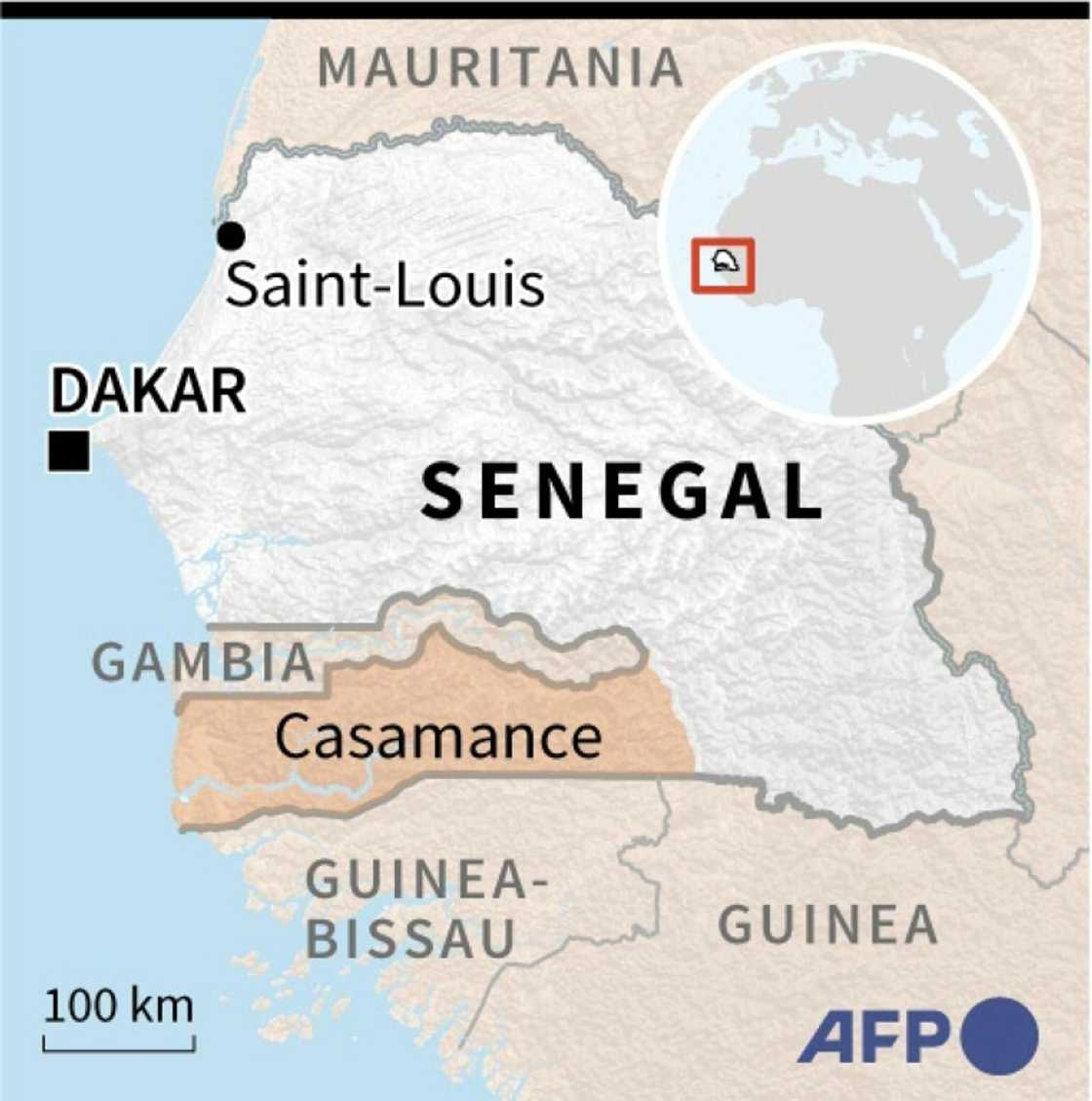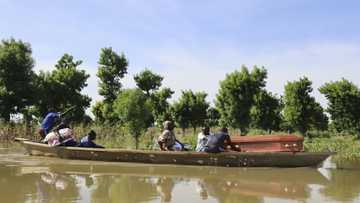On the traces of Senegal's enigmatic anti-colonial heroine

Source: AFP
PAY ATTENTION: Сheck out news that is picked exactly for YOU ➡️ find “Recommended for you” block on the home page and enjoy!
She is hailed today as a figurehead of Senegal's fight for independence from France -- but trying to seize the elusive substance of her life is almost like trying to capture a ghost.
Aline Sitoe Diatta is lauded in the West African nation as the embodiment of the anti-colonial struggle, which culminated with independence in 1960, 16 years after her death.
Among the honours bestowed on her are the name of the ferry between the capital Dakar and her native region of Casamance, as well as sports stadiums, schools and a university residence for women in Dakar.
Schoolchildren in Casamance, a southern region ensconced between The Gambia to the north and Guinea-Bissau, are immersed in her story.
They learn that Diatta, dubbed the "Queen of Kabrousse" after the village where she was born in 1920, was suspected by the French of fomenting an anti-colonial revolt.
At the age of 24, the French deported her to Timbuktu, more than 2,300 kilometres (1,429 miles) away, in what is now the deserts of Mali. She died there in 1944 of scurvy.
PAY ATTENTION: Enjoy reading our stories? Join YEN.com.gh's Telegram channel for more!
Yet no physical trace of Diatta remains in Senegal -- not her house, her body, not even an object.
"The colonists took everything. But we have kept her memory and the faith she passed on to us," said Mathurin Senghor Diatta, one of her nephews.
History 'rewritten'
Even Diatta's image is uncertain.
In 2020, French author Karine Silla wrote a fictional work on Diatta, with the front cover displaying a photograph of a pipe-smoking young woman proudly posing for the camera with her breasts bared and arms crossed.

Source: AFP
But in her village and in universities, no one can say for sure whether the picture is really of her.
And her true part in the anti-colonial struggle seems to have been filtered and altered through the prism of history.
Kabrousse's village leader, Matar Sambaisseu Diatta, said Diatta was a spiritualist, and the popular version of her story plays down her ethnic and animist roots.
"She never opposed colonial interference," he said.
"At the time, lots of people came to see her for (spiritual) consultation, and the colonisers believed she was a danger to them. Her story was later rewritten."
This view is supported Jean Diedhiou, a researcher in anthropology at the University of Ziguinchor, the capital of Casamance.
Diatta, he said, is the victim of "commemorative inversion... a rewriting of history for political ends".
"Diatta was a priestess, of which there were others in Casamance," where there is a deep tradition of village religions, he said.
She never called for an uprising, but did encourage civil disobedience against the requisition of rice, which at the time was required by the ruling French, he said.
"Where she is today stems from the fact that she was arrested and exiled, and the status that the colonisers gave her. It's what I call the post-colonisation paradox -- things that the colonisers did are transformed into legacy."
1970s push
Diatta's place in Senegal's collective memory dates back to the early decades of the fledgling republic.
In the 1970s, she featured in radio broadcasts by Augustin Diamacoune Senghor, a Catholic priest and campaigner for Casamance's independence.

Source: AFP
She was then taken up and brought to a wider public by left-wing groups looking for heroes who symbolised the fight against colonisation.
"For people who were young and became politically aware in the 1970s, Aline Sitoe Diatta was a reference point," said journalist Fatoumata Sow, a founder member of the feminist movement Yewwu-Yewwi.
"We set up a prize in her name to reward people who fought for the emancipation of women," she said.
"She personified the values of resistance, equality between the sexes and the social advancement of women."
Diatta's ethnicity was also useful for cementing national unity, said Alioune Tine, a civil society leader.
She was a member of the Diola ethnic group in Casamance -- a former Portuguese colony that has a distinctive culture from the rest of Senegal and hosts one of the world's longest-running separatist revolts.
'Role model'
In the nearby resort of Cap Skirring, French vacationer Kani Ba, whose family originated from Senegal, said she had come to see "where (Diatta) came from, to feel her energy".
"In France, women are put forward as role models, but it is rare to see women of African heritage. It's crucial to have heroines of African background, because it helps us to progress," said Ba, who is aged in her 40s.
"Life is simpler when you accept your own identity."
Back in the village of Kabrousse, dark clouds penetrated by rays of sunshine have brewed, and a gentle breeze rustles through the trees. Dogs bark and children squabble.
In a few hours, local animists will gather to pray for the rain that will make the rice grow -- a "fetish", or magic ritual, that they say was taught by Diatta herself.
New feature: Сheck out news that is picked for YOU ➡️ find “Recommended for you” block on the home page and enjoy!
Source: AFP





